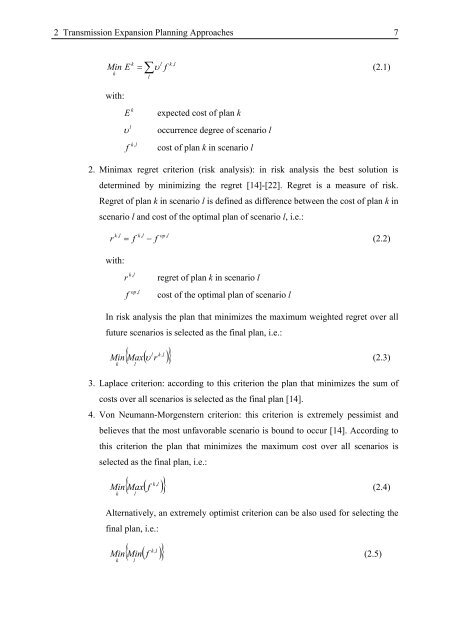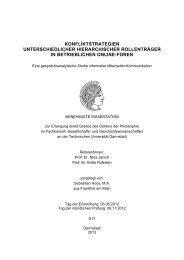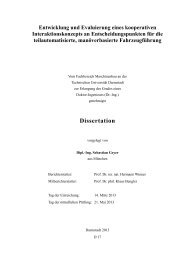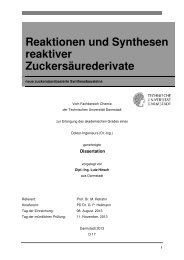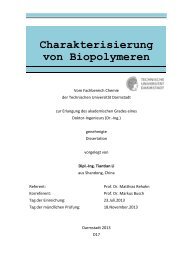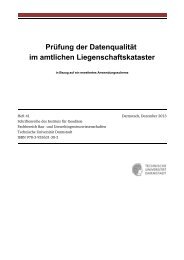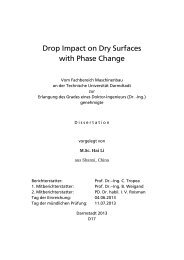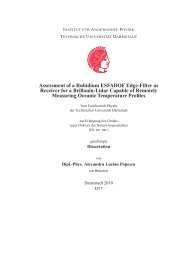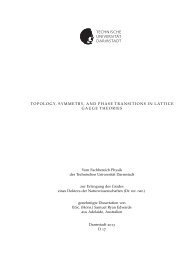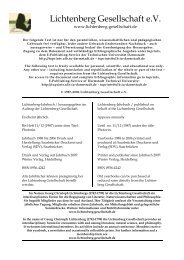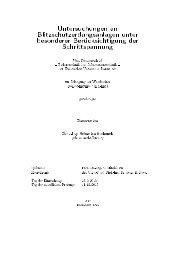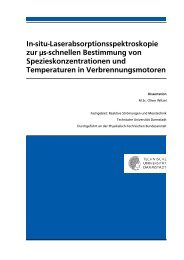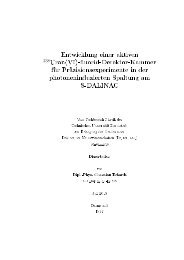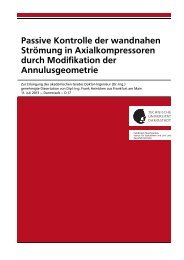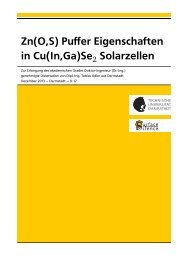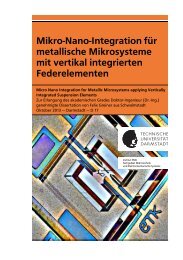Transmission Expansion Planning in Deregulated Power ... - tuprints
Transmission Expansion Planning in Deregulated Power ... - tuprints
Transmission Expansion Planning in Deregulated Power ... - tuprints
Create successful ePaper yourself
Turn your PDF publications into a flip-book with our unique Google optimized e-Paper software.
2 <strong>Transmission</strong> <strong>Expansion</strong> <strong>Plann<strong>in</strong>g</strong> Approaches 7<br />
M<strong>in</strong> E<br />
k<br />
with:<br />
k<br />
∑<br />
= l<br />
l k , l<br />
υ f<br />
(2.1)<br />
k<br />
E expected cost of plan k<br />
l<br />
υ occurrence degree of scenario l<br />
f<br />
k l<br />
, cost of plan k <strong>in</strong> scenario l<br />
2. M<strong>in</strong>imax regret criterion (risk analysis): <strong>in</strong> risk analysis the best solution is<br />
determ<strong>in</strong>ed by m<strong>in</strong>imiz<strong>in</strong>g the regret [14]-[22]. Regret is a measure of risk.<br />
Regret of plan k <strong>in</strong> scenario l is def<strong>in</strong>ed as difference between the cost of plan k <strong>in</strong><br />
scenario l and cost of the optimal plan of scenario l, i.e.:<br />
r<br />
k,<br />
l k , l op,<br />
l<br />
= f − f<br />
(2.2)<br />
with:<br />
k l<br />
r , regret of plan k <strong>in</strong> scenario l<br />
f<br />
op l<br />
, cost of the optimal plan of scenario l<br />
In risk analysis the plan that m<strong>in</strong>imizes the maximum weighted regret over all<br />
future scenarios is selected as the f<strong>in</strong>al plan, i.e.:<br />
M<strong>in</strong><br />
k<br />
l k , l { Max(<br />
r ) }<br />
l<br />
υ (2.3)<br />
3. Laplace criterion: accord<strong>in</strong>g to this criterion the plan that m<strong>in</strong>imizes the sum of<br />
costs over all scenarios is selected as the f<strong>in</strong>al plan [14].<br />
4. Von Neumann-Morgenstern criterion: this criterion is extremely pessimist and<br />
believes that the most unfavorable scenario is bound to occur [14]. Accord<strong>in</strong>g to<br />
this criterion the plan that m<strong>in</strong>imizes the maximum cost over all scenarios is<br />
selected as the f<strong>in</strong>al plan, i.e.:<br />
M<strong>in</strong><br />
k<br />
k , l { Max(<br />
f ) }<br />
l<br />
(2.4)<br />
Alternatively, an extremely optimist criterion can be also used for select<strong>in</strong>g the<br />
f<strong>in</strong>al plan, i.e.:<br />
M<strong>in</strong><br />
k<br />
k , l { M<strong>in</strong>(<br />
f ) }<br />
l<br />
(2.5)


